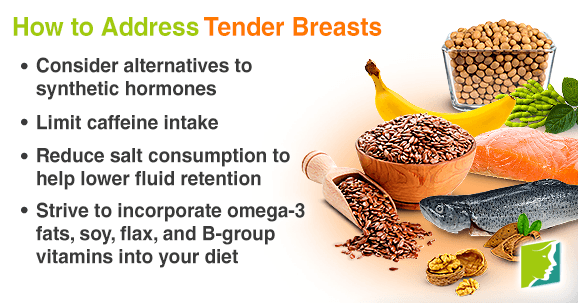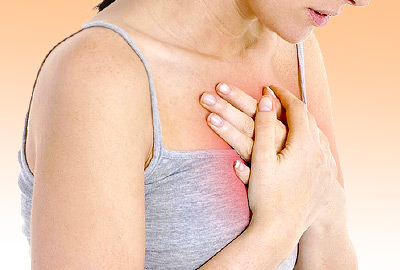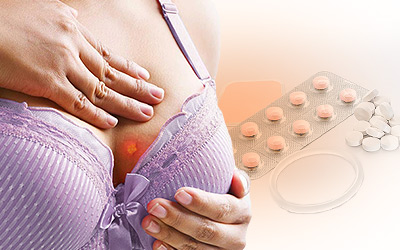Breast tenderness is most commonly associated with the reproductive years, as it is a normal occurrence that goes hand-in-hand with menstruation. It's not a far stretch, then, for women to assume that breast pain would be a thing of the past after reaching the phases of menopause. Some menopausal women even become alarmed when they feel it, wondering if it is an indicator of breast cancer. A sore chest, however, is not a surprising symptom of menopause if you are well-informed, and there are certainly avenues by which to find relief.
About Breast Pain
Breast pain - medically referred to as mastalgia, mastodynia, or mammalgia - can be either cyclical or non-cyclical. Breast pain is characterized by a burning pain, tightness, soreness, or swelling occurring in one breast, or sometimes both. It can be felt throughout the whole breast, or perhaps just a small part. Some discomfort can also be mistaken for breast pain that is actually caused by other issues in the surrounding area. Often, breast pain is mild enough for you to continue normally throughout your day, but when it is severe enough to interrupt your routine, it is crucial to take action.
Reasons for Breast Pain
As with so many other symptoms of menopause, this unexpected tenderness can be blamed on fluctuating hormones. Breast tissue is sensitive to these changes and prone to fluid retention under their influence, similar to what happens during the menstrual cycle. In this case, excess estrogen or progesterone causes swelling and achiness, a natural occurrence during the phases of menopause. Often, women who are taking synthetic hormones in an attempt to even out the shifting and lowered levels will experience this discomfort.
Less often, breast pain can occur from more serious issues, such as infection, abscesses, large breast size, arthritis, cysts, stress, alcohol, oral contraceptives, or antidepressants. While tenderness is not uncommon and does not necessarily indicate cancer, talking to and getting examined by your doctor could not only help get to the bottom of your pain, but also give you peace of mind.
How to Address Tender Breasts
Perhaps soon you will be able to return to a comfortable, confident routine when you consider some of the options below that tackle hormonal inconsistencies - the root cause of breast pain:
- Consider alternatives to synthetic hormones
- Limit caffeine intake
- Reduce salt consumption to help lower fluid retention
- Strive to incorporate omega-3 fats, soy, flax, and B-group vitamins into your diet
In the meantime, it may also be helpful to wear a comfortable, firm, and supportive bra, especially during exercise and even sleep, if needed, as well as partake in relaxation techniques, yoga or stretching.
The good news is that once your hormone levels balance out - the major player in the game of menopausal symptoms - breast tenderness should go away on its own. To further encourage the steadying of your body's hormones, take simple and natural measures such as reducing stress, improving your diet, and getting regular exercise. These steps could not only go a long way in reducing your discomfort, but will also help you achieve overall health, well-being, and happiness.
Sources
- Harvard Health. (2005). Breast pain: Not just a premenopausal complaint. Retrieved January 9, 2015, from http://www.health.harvard.edu/fhg/updates/update1005c.shtml
- Jonekos, S. & Klein, W. (2009.) The Menopause Makeover: The Ultimate Guide to Taking Control of Your Health and Beauty During Menopause. Ontario: Harlequin, pp. 12, 25.
- Northrup, Christiane. (2001). The Wisdom of Menopause: Creating Physical and Emotional Health During the Change. New York: Bantam Dell, pp. 130, 437-438, 468.




